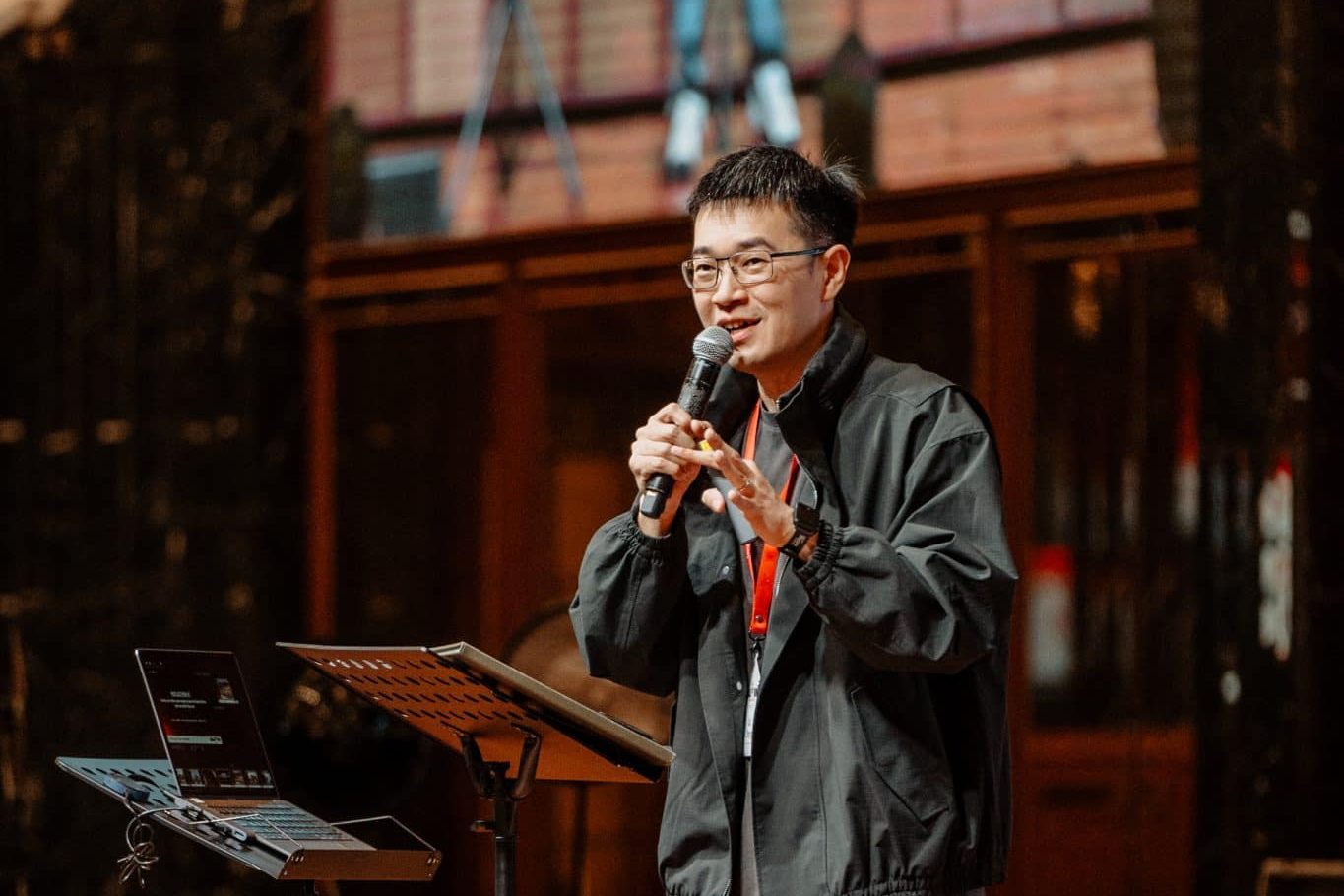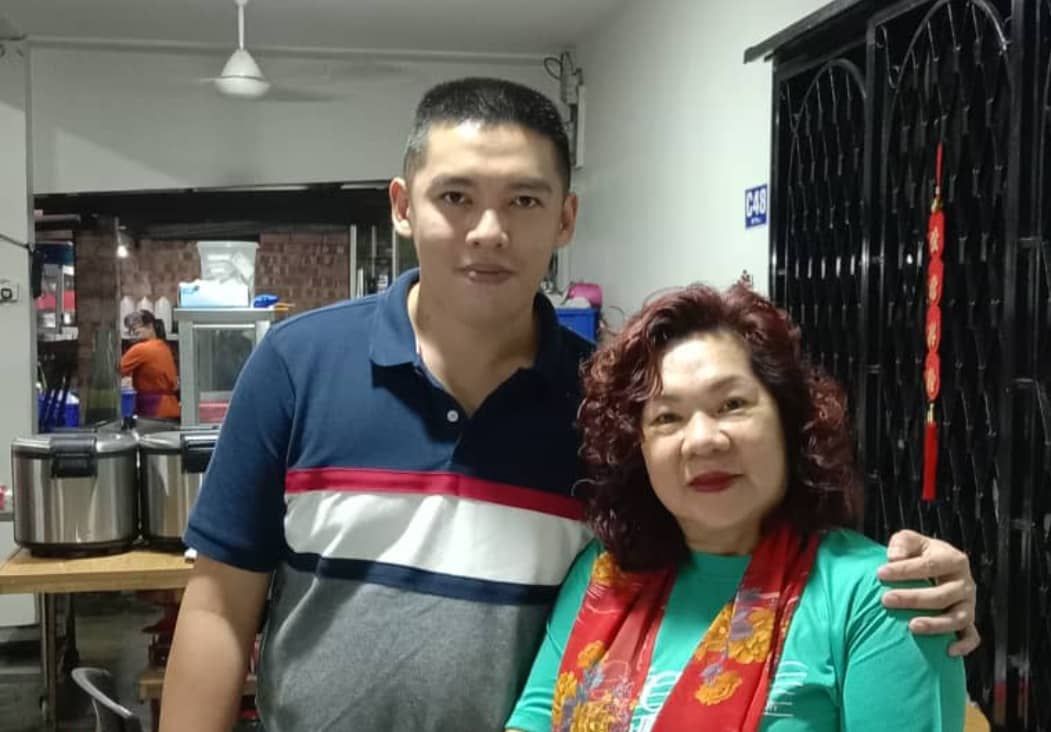
“If we could inspire just 12 kids who will make a huge impact in the future by becoming programmers, game developers or financiers with a mission grounded in Christ, then our mission would be complete," said Lily Chia. All photos courtesy of Land of Promise.
In a generation where screens dominate attention and virtual worlds serve as playgrounds, it can be challenging to connect meaningfully with the youth.
This is why Lily Chia and Patrick Lee want to take the Gospel right to where the youth are – in particular, the gaming world.
After realising that there was a dearth of Christian influence in the online gaming space, the husband-wife duo founded Land of Promise, a faith-based virtual world on popular sandbox video game Minecraft, which they hope will help them connect with and disciple the next generation.
In Land of Promise, players can explore a virtual replica of Jerusalem AD60, the Tabernacle and the Sea of Galilee, as well as Noah’s Ark and the Tower of Babel. They can also find their way around a metropolis urban city, which has a faith-based art gallery and a Scripture meditation garden.
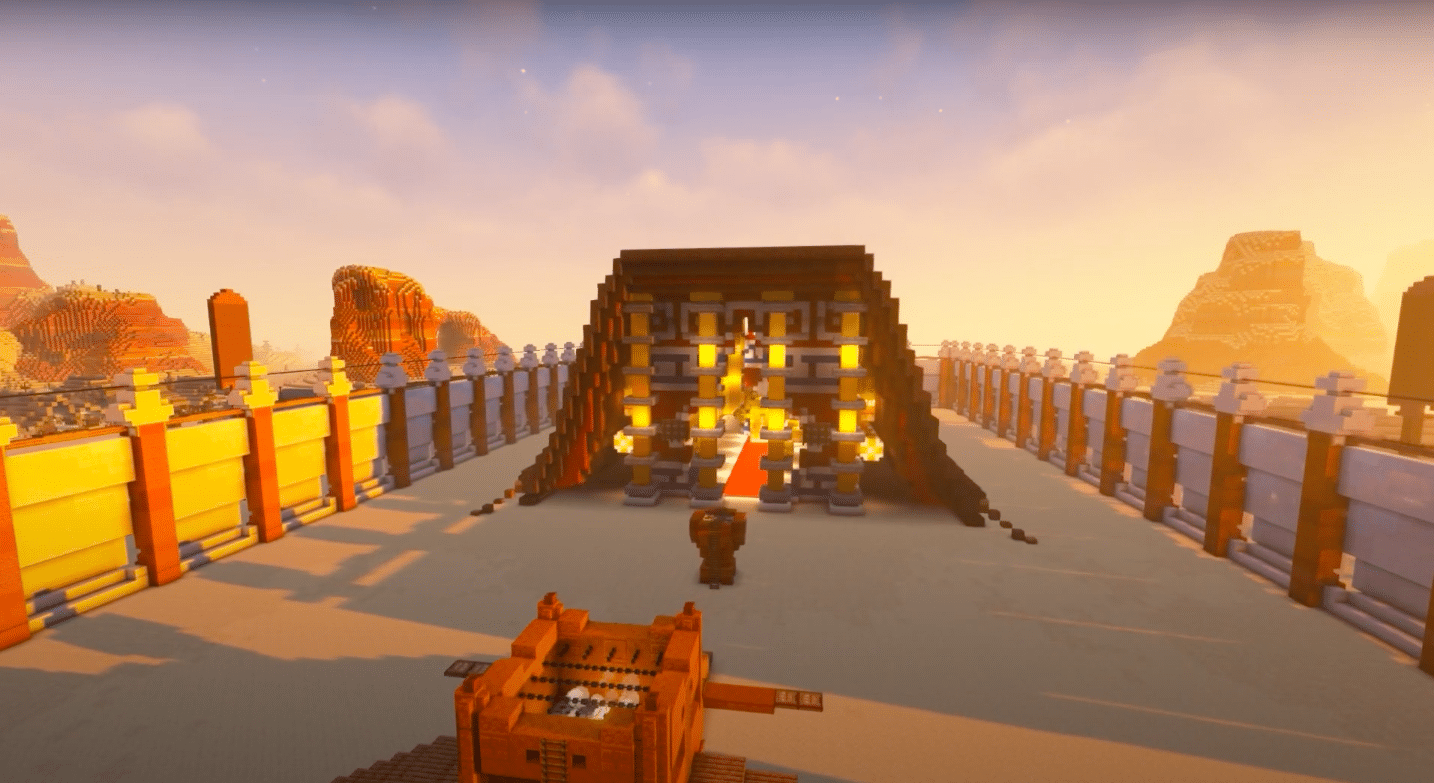
The Tabernacle in Land of Promise was constructed as closely as possible to the dimensions provided in the Bible.
As Minecraft is an open-world game with various game modes, there are many ways players can interact with the virtual world, from fighting for survival and building structures to playing mini games and connecting with other players.
By speaking in the language of the youth and taking an interest in what they enjoy, the couple, who spent some two decades in youth ministry, hopes to bring Christ to them more effectively.
Noting that young people are spending more and more time in the virtual world, she said: “Just as Jesus came to where we were, we’ve got to go where the kids and youth are to understand their world.”
Bringing Christ into the digital space
Since the project started in March 2022, the team of six behind Land of Promise has been working with a group of 20 children from various countries in Southeast Asia to develop a Bible curriculum and fine-tune the server.
Public access to the server is currently restricted, though interested players may join the Land of Promise Discord channel and request for access. In time, the team hopes to make the server public so that youth ministries and Christian schools can use it to engage the youth, said Lily.
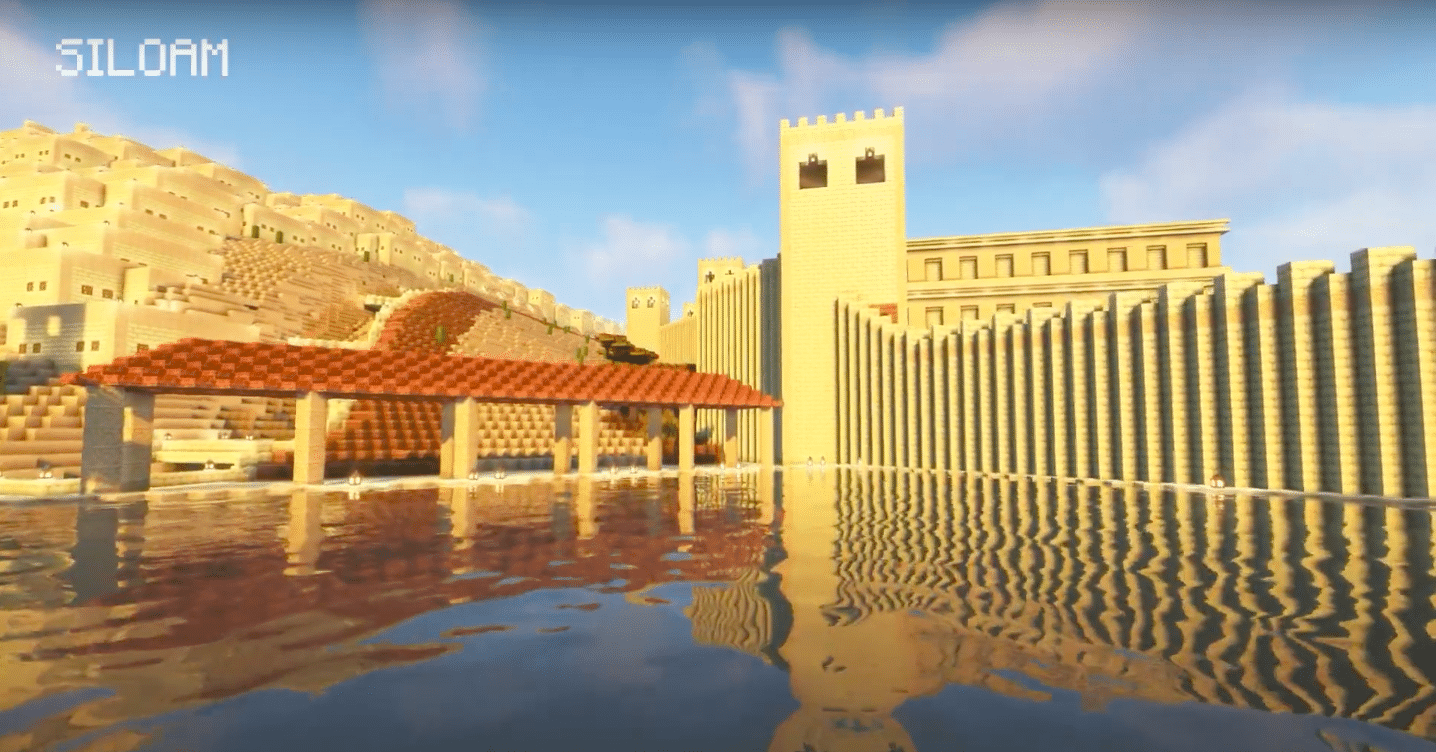
A section of Jerusalem AD60, which players can explore to learn about biblical times.
To help non-Minecraft players better understand how Land of Promise can complement online Bible learning, she gave an example of a lesson on the armour of God.
After meeting students on Zoom and teaching them about the armour of God from the Bible, the group will enter the Land of Promise to mine for resources and craft the armour in small groups.
As they build, a facilitator attached to each small group will talk them through the different aspects of the armour to reinforce what they have learnt from the Bible.
“Just as Jesus came to where we were, we’ve got to go where the kids are to understand their world.”
When each team’s armour is ready on the armour stand, one player from each group will then don the armour to fight a dragon found in the Minecraft world.
The point is to draw similarities to how God’s enemy is portrayed as a dragon in Revelation, and how we need the armour of God to fight it well.
Other examples of how Land of Promise can be used include having a building competition of the ark of God, based on the dimensions provided in the Bible, as well as completing quests that involve Bible knowledge, Lily explained.
As the students navigate the world, they are encouraged to exemplify Christ-like values like integrity, good language and kindness to other players, she added.
Joshua Ng, a 10-year-old who was part of a test group, was thrilled when he got to build a virtual replica of the Tabernacle based on the description provided in Scripture. “It was a really fun way to experience the Bible. It’s like my favourite things coming together,” he said.
“I learnt a lot about the Tabernacle – the shape and size of it, the items in it and the materials that were used to build it,” he added, noting that even his pre-believing friends enjoyed the session.
Though the project is still in its early stages, Lily has already seen fruits of the work even internationally.
She shared that a teenage boy from the United States joined their Discord server (an instant messaging and social platform) and felt comfortable enough to confide in a staff member about his personal struggles.
“He felt safe to share because we are far away and we don’t know who he is,” she said, adding that this is one aspect of technology that they can leverage for ministry.
Keep digging
As someone who had never gamed before and once had zero knowledge about the metaverse, Lily, speaking on behalf of the couple, shared that Land of Promise had come about entirely by God’s leading.
In 2020, she obeyed God’s call to shutter the branding creative agency she had set up with her husband 20 years ago to re-evaluate her calling in life.
As she slowed down, she and her husband, a faith-based artist who also goes by the name Patrick Bezalel, felt a strong desire to use their skills to present the Gospel in creative ways.
“Keep digging,” the pastor told them. “Don’t stop and you will strike gold.”
An opportunity came when she stumbled upon blockchain technology during the pandemic and realised that many young people were getting involved in it.
“I saw unprecedented things like 14-year-olds becoming millionaires in a few weeks,” recalled Lily, 51. On top of existing trappings of the online world like gaming addictions and pornography, now there was an added trapping of money, she said.
“Who is going to shepherd them?” wondered the couple, who have no children but have a heart for the young. “Perhaps the Church needs to understand the space and the language that this generation is speaking.”
Figuring that the best way to learn about the metaverse was to step into it, the couple decided to start a virtual art gallery and create an NFT collection of Patrick’s art.
As they gained a better understanding of the space, they were led to Minecraft. Pressing into God’s heart, they felt Him tell them to start engaging the youths at a young age and use the platform to build up the next generation.
Challenged with a steep learning curve, Lily watched a copious number of YouTube videos and asked her godchildren for guidance.
“I also had to overcome motion sickness!” she said with a laugh. “But I’ve learnt to manage it, like walk a bit slower, don’t fly too fast, don’t change point-of-view too quickly, things like that.”
Still, Lily often doubted if she and her husband – Gen X-ers who had not grown up with the Internet – had heard God correctly, and if they were the right people to be called into the digital space.
Yet each time a cloud of discouragement threatened to settle around them, God brought someone to encourage them to keep going.
Once, a guest pastor from abroad who did not know about their Minecraft project visited the pair at their art gallery and told them that he sensed the word “mining” from God to them.
“Keep digging,” the pastor told them. “Don’t stop and you will strike gold.”
Setting an example
More than just discipling young people online, however, the couple hopes to inspire them to bring their faith into the digital space.
“We must constantly innovate and be aligned to the times if we want to reach the lost and learn the ‘language’ that they speak.”
“We are not digital natives; the young ones are. But who is training them, preparing them, equipping them and giving them the mindset that when they are playing a game, they can minister to others as well?” said Lily, who also runs Minecraft crash courses for parents to help them connect with their children.
“The Church cannot shun the gaming sector anymore,” she added, noting that there are few games with biblical values in the industry that millions of young people are regularly spending time in.
“If we could inspire just 12 kids who will make a huge impact in the future by becoming programmers, game developers or financiers with a mission grounded in Christ, then our mission would be complete.”
Lily ultimately believes that, as people created in the image of a creative God, we can all find creative ways to share the Gospel as we rely on the guidance of the Holy Spirit.
She said: “The message does not change, but we must constantly innovate and be aligned to the times if we want to reach out to the lost and learn the ‘language’ that they speak.”
Are you a creative?
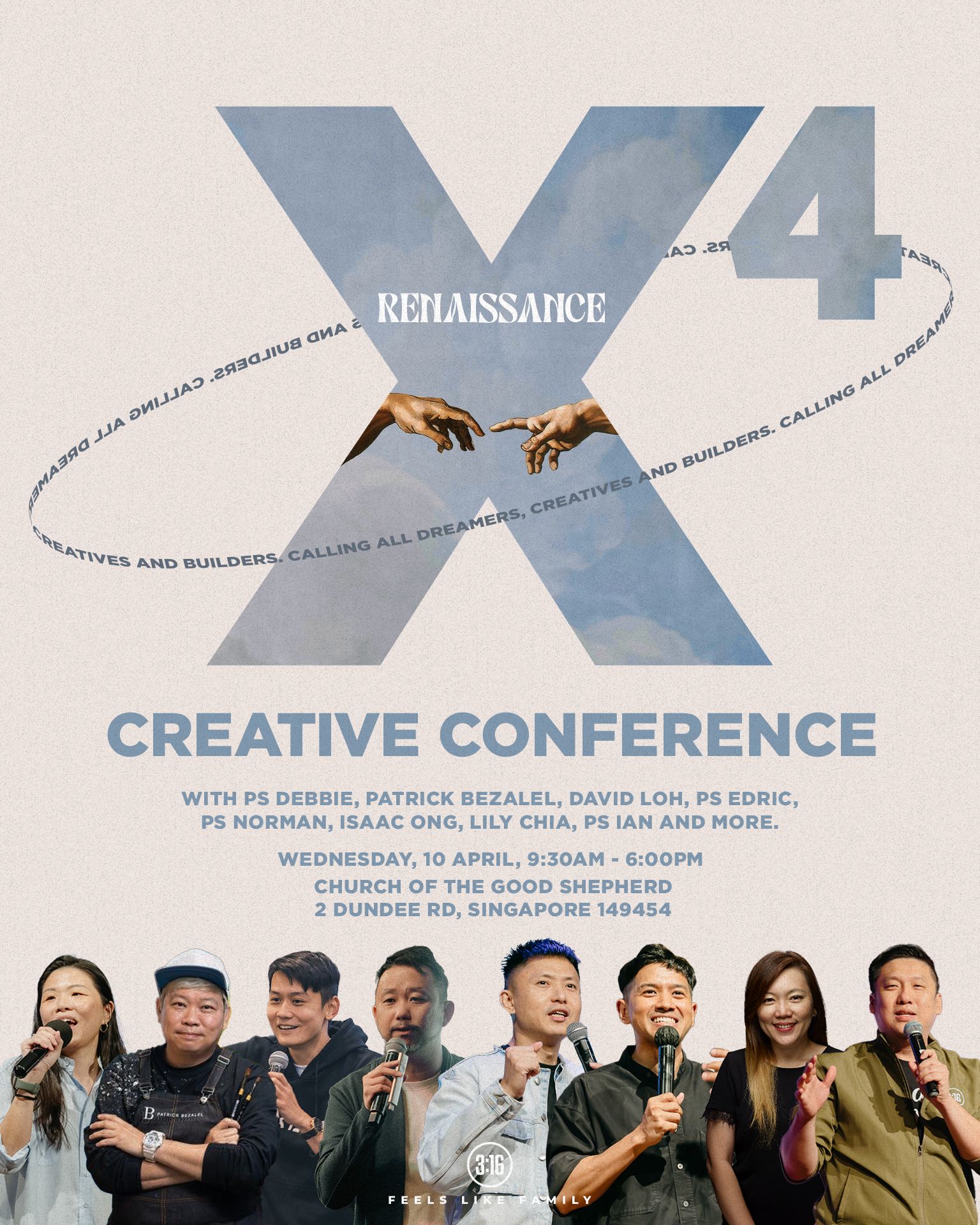
The X4 Creative Conference is organised by 3:16 Church.
On April 10, Lily and Patrick will be speaking at the X4 Creative Conference, which aims to bring Christian creatives together to share stories, exchange ideas and bridge people into communities and collaborations for the Kingdom.
They are among a line-up of creative pioneers and artists whose acts of faith are impacting culture and transforming nations.
Come and hear what they have to share! Tap here for more information.
RELATED STORIES:
Growing up around gangsters, he now inspires others with his faith-based art
She gave up art but God redeemed her talent to bring hope and healing
We are an independent, non-profit organisation that relies on the generosity of our readers, such as yourself, to continue serving the kingdom. Every dollar donated goes directly back into our editorial coverage.
Would you consider partnering with us in our kingdom work by supporting us financially, either as a one-off donation, or a recurring pledge?
Support Salt&Light
